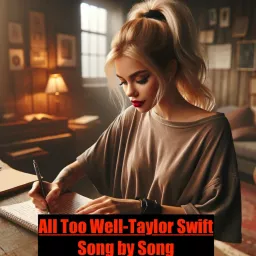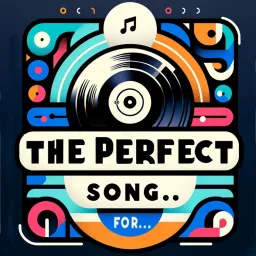Taylor Swift Song by Song - All Too Well

From Whirlwind Romance to Raw Breakup Ballad: The Story Behind Taylor Swift's "All Too Well"
Among Taylor Swift's emotive discography laying bare her personal chronicles of love and loss through piercing lyricism, few compositions encapsulate the crushing rise and fall of a relationship quite like her magnum opus "All Too Well". Released in 2012 on Swift's album "Red", the nearly six-minute song narrates the story of a fiercely passionate romance doomed to fail, recounted through vivid details and lived emotion with the wistful hindsight of maturity. Far from a straightforward breakup lament, "All Too Well" reveals Swift's most sophisticated songwriting to date as she reflects on being blindsided by a lover's abrupt detachment and grappling to find closure. Examining the track's inspiration and evolution makes its masterful emotional resonance fully appreciable and explains how "All Too Well" is widely considered Swift's defining career milestone by both fans and critics.
While famously guarded about directly identifying real-life inspiration for her lyrics, Swift has hinted over the years that "All Too Well" recounts her brief but intense 2010 relationship with actor Jake Gyllenhaal which rapidly disintegrated. Swift composed the first raw 15-minute version of "All Too Well" in stunned devastation mere weeks later, still reeling at age 21. Eagle-eyed fans corroborated the song's origins, matching subtle lyrical references pointing to a significant age gap with then 29-year-old Gyllenhaal, mentions of his sister’s home where Swift had been photographed, and imagery like dancing in the refrigerator light with paparazzi snaps of the pair dancing in his sister's kitchen.
Even in embryonic drafts, "All Too Well" boasted startlingly specific imagery of mementos like the lover's scarf left behind in heartbreak's rubble. But Swift trimmed the sprawling breakup autopsy down to an economical five minutes of surgically precise gut punches for the album release. Reflecting later as an adept songwriter, she recognized pure lyrical power lay in spotlighting resonant emotional touchstones - the breathless first embrace, blowout fights, the favored old t-shirt discarded at the song's end, symbolizing rejection's finality. Choosing standout visual details lent dramatic heft and intrigue. She framed the romance's delirious emotional escalation, raging arguments and its abrupt, painful cratering with the clear-eyed maturity of experience.
Split between wistful verses oozing bittersweet nostalgia and a cold-eyed bridge erupting with simmering anger, "All Too Well" assumes a self-aware woman's perspective of youthful romantic folly. Swift's lyrics depict hallmarks of an impassioned courtship - dancing with abandon to their favorite song, wandering unfamiliar city streets hand-in-hand til sunrise lost in intimate conversation. But sinister hints loom as Swift notes "we booked weekend trips to battleships" hinting at tempests ahead.
When the relationship disintegrates unexpectedly, the tone pivots sharply into indignation and recrimination before finding liberation admitting "actually I’m doing better than I ever was". As Swift unleashes on callous behavior from her ex, she briefly turns the microscope inward - "maybe we got lost in translation" - hinting she herself may bear some responsibility, before blaming his emotionally stunted immaturity. Ultimately she emerges the wiser for it having weathered love’s wretched lows and healing highs. The dramatic emotional arc through disillusionment, despair and acceptance makes “All Too Well” feel cathartic.
Beyond blunt feelings though, Swift maximizes “All Too Well’s” devastation through deliberate production choices reflecting the relationship’s messy collapse. Straddling pop and alternative rock, the song piles on unexpected chord shifts, layered vocal harmonies and muffled drum tracks heightening tension. Swift’s increasingly frayed vocal delivery simmers over the swirling instrumentation before she erupts into rageful cathartic howls, audibly choking back fury and grief. In the icy denouement, her voice turns steely calm, directly channeling feminine fury. This sonic craftwork proved revelatory as Swift took complete command of her artistic vision.
Upon its November 2012 “Red” album release, critics immediately praised “All Too Well’s” emotional honesty and specificity, hailing Swift’s songwriting prowess leaping bounds beyond her years. But her 2013 stripped-down performance at the Grammy Museum generated equal astonishment. Backed only by two acoustic guitars, Swift infused world-weary resignation into each line, utterly transfixing the packed audience. Fan word-of-mouth quickly vaulted the track into her touring setlist rotation where it reliably triggers the most rapturous crowd sing-alongs night after night, especially among Millennials who grew up alongside Swift's artistic evolution.
Interestingly, despite 10 years elapsed since its composition, “All Too Well” became a cultural phenomenon again in late 2021 when Swift released her re-recording of “Red”. Her inclusion of the fully restored 10-minute “Taylor’s Version” with previously excised lyrics enthralled fans anew. She paired it with a short film depicting the song’s ill-fated couple, played by Sadie Sink and Dylan O’Brien, from giddy first meeting through bitter dissolution. Rediscovering the track triggered Millennials, now themselves battle-worn veterans of love’s shipwrecks, to wallow in Swift’s eloquently etched scars so eerily mirroring their own. New Gen Z fans heralded the composition too as evidence of Swift’s preternatural songwriting talent that ripened early on.
Clearly “All Too Well” profoundly resonated from its inception, bravely exposing love’s war wounds still raw and bleeding within Swift. Yet her decision to revisit its narratives through a decade’s hardened lens amplified the track’s vulnerability even more. For the song now seems a strangely ageless anthem articulating love's soaring euphoria and its wretched unraveling with equal fluency no matter whether you first hear it at age 15 or 35. Few compositions by any artist manage such universality.
And that is ultimately “All Too Well’s” greatest achievement - affirming that countless listeners across generations will grapple with love, crash hard against our own naivety, yet rise bloodied but wiser. Swift gifts us solidarity knowing great songs weave through such shared human experiences long after any single affair fades. In all these ways, “All Too Well’s” hard-won insights into romance’s wreckage will likely continue impacting fans for decades all too well.
Beyond the track itself, the very trajectory of “All Too Well” from Swift’s broken-hearted handwritten first drafts scribbled as emotional triage to finding new resonance recorded with more world weary vocals and restored lyrics in the wake of further life experience and heartbreaks all demonstrate Swift’s unique bond with her fans who have grown alongside her.
Since her debut at age 16, Swift bravely examining her personal romantic ups and downs through songcraft has resonated powerfully with fans because she never panders or pretends to have all the answers about love. Like her admirers, Swift has weathered cruel betrayals, punishing power imbalances, and shame spirals following mistakes, and still dares to hope anew each time. Her transparency through each life phase - whether chaotically exploring love as a teenager reconciliation attempts in her 20s or reflecting on patterns holding her back by her 30s - behaves like a trusted friend eternally giving voice to listeners’ own private regrets and revelations navigating relationships.
But “All Too Well” in particular seems Swift’s strongest compass guiding generations through choppy amorous seas by spotlighting pale glimpses of maturity even in its earliest versions that she expanded more recently. With this track she grasps life’s cyclical nature - that we likely repeat generational patterns of unhealthy attachment and abandonment until finding self-awareness to make changes. Swift has proven willingness to rework that honesty over multiple career chapters rings deeply empathetic rather than just baldly attention-seeking - surely resonating with recession-formed Millennial women applauding her breakthroughs and missteps equally on the winding road to romantic insight.
Through it all, even casual fans note Swift forges an intimate connection not relying solely on vocal prowess but channeling emotional wisdom greater than her years more resembling the ancient folk tradition of sharing hard truths through lyrical diaries. For ultimately Swift twists broader cultural assumptions about superficial pop music by crafting resonantly insightful compositions echoing far beyond fleeting tabloid glare or news cycles.
And that rare empathetic gift is why “All Too Well” will endure as Swift’s definitive career milestone however many times she revisits its touchpoints - because at its core lies perhaps her most valuable creative legacy: bravely affirming generations of women weathering cyclones of chaotic feelings, scars etched by men who left them battered, yet resolving to trust love’s risks once more with deeper self-awareness. Such resolve deserves celebration and solidarity, not judgment. Just as Swift won’t relinquish educating fans in that hard-won knowledge, so too will “All Too Well” likely continue impacting generations for years all too well. Thanks for listening to Quiet Please. Remember to like and share w



